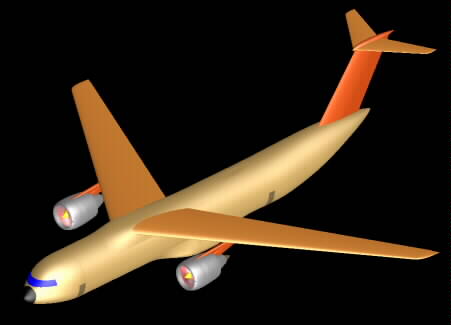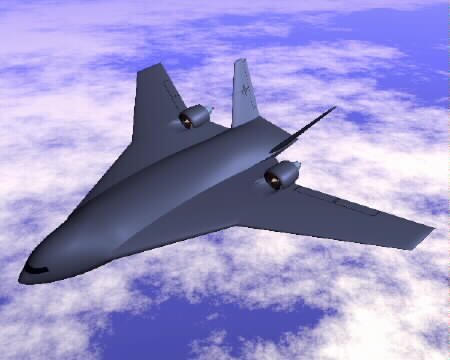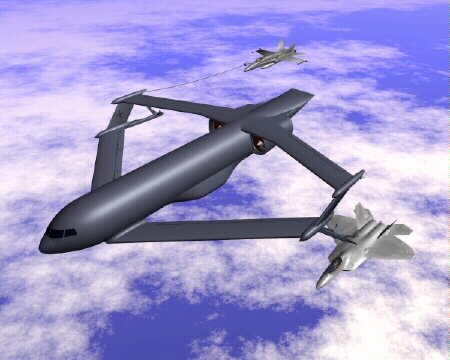


New Strategic Aircraft (NSA)
The current USAF "Air Mobility Master Plan" calls for the
retirement of the C-141 transport by the year 2006 and retirement of the
KC-135 tankers to begin in 2013. These 700+ aircraft, 80% of the current
mobility fleet, are now 25 to 30 years old and are experiencing fatigue and
corrosion problems leading to low availability rates. The C-141B represents
35% of the current US strategic airlift capability while the KC-135 comprises
90% of the tanker fleet.
Lockheed Martin Aeronautical Systems (LMAS) is studying a new family of
mid-size jet transport aircraft, called the New Strategic Aircraft (NSA), to
meet U.S. DOD, international, and commercial requirements for:
- military strategic airlift,
- military air refueling,
- military personnel and equipment airdrop,
- commercial cargo and package delivery,
- a commercially viable, military capable CRAF aircraft.
The goal of the NSA program is to develop the standard long range mobility
aircraft for the first half of the 21st century. The basic NSA airframe will be a
commercially certified aircraft with provisions for modular components and
systems to allow the aircraft to evolve to meet changing
requirements and missions.
The aircraft will be able to perform airlift and tanker missions
through the use of integrated modular tanker systems. This will allow the use
of one airframe, with the resulting logistics and operational advantages, to
fulfill AMC airlift, airdrop, and air refueling missions. In the airlift role, the
NSA can carry all the equipment of the Army's light divisions over a 4,000
NM range. The aircraft can airdrop over 150 paratroops or two 60,000
pound airdrop loads. For tanker missions, the aircraft can exceed the fuel
offload of the KC-135R while retaining its basic airlift capability.
LMAS Advanced Design engineers have studied over 40 aircraft concepts
since the initiation of the NSA project in 1994.


Current effort is focused on the joined wing configuration and the operational
advantages of a tanker aircraft with two refueling booms. Given that the
USAF will not replace its current tankers on a one-for-one basis, planners
will face a "boom intensive environment" in future conflicts

Sources and Resources
http://www.fas.org/man/dod-101/sys/ac/nsa.htm
Maintained by Robert Sherman
Originally created by John Pike
Updated Wednesday, November 18, 1998 5:42:54 PM







